42 active transport and passive transport venn diagram
This worksheet has been designed to help your students examine the similarities and differences between diffusion, osmosis, and active transport. Students are tasked with filling out the Venn diagram with a series of statement, correctly doing so will show them how these different particle movement methods differ, and where they're the same. active transport phagocytosis endocytosis exocytosis 1. Draw the last step of exocytosis at right. 2. Draw the first step of endocytosis at right. 3. The biggest difference between active transport and passive transport is the need for the cell to use . 4. Draw a Venn diagram in the space to the right to compare and contrast exocytosis and ...
Click to see our best Video content. Take A Sneak Peak At The Movies Coming Out This Week (8/12) New Movie Releases This Weekend: November 26-28
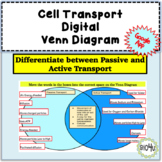
Active transport and passive transport venn diagram
However, the reduction in OXPHOS could also be a passive reflection of the observed increased percentage of upstream HS(P)Cs in untreated FH patients. Future studies on whether these aforementioned metabolic changes drive monocytic biased differentiation of HSPCs, and via which mechanisms the different cholesterol-lowering treatment modalities impact these changes, are … Passive transport is the movement of molecules or ions from an area of higher to lower concentration. There are multiple forms of passive transport: simple diffusion, facilitated diffusion, filtration, and osmosis.Passive transport occurs because of the entropy of the system, so additional energy isn't required for it to occur. Active Transport includes the endocytosis and exocytosis. Active Transport does require a type of energy and it is called ATP. · During passive transport cells ...
Active transport and passive transport venn diagram. Passive & Active Transport April 30, 2020. High School General Biology Lesson: Passive & Active Transport Objective/Learning Target: Students will understand how ... Create a Venn Diagram like the one you see here ---> 3. Compare and contrast Active and Passive Transport by the information Passive And Active Transport Venn Diagram. 1 The Cell Cycle Is Divided Into Four Phases G 1 S G 2 M Resting Cells Are In A G 0 Phase Out Cell Cycle Teaching Biology Basic Anatomy And Physiology. Cell Transport Digital Venn Diagram Cell Transport Venn Diagram Cell Membrane Structure. There are two major ways that molecules can be moved across a membrane, and the distinction has to do with whether or not cell energy is used. Passive mechanisms like diffusion use no energy, while active transport requires energy to get done. Cartoon representing passive transport as rolling a boulder down a hill and active transport as ... This Venn diagram illustrates how the concept is positioned as the focus forconcept-based learning. Nursing practice, skills, theory and related disease processes (exemplars) are integrated with the corresponding concept and are threaded throughout the curriculum.
Create a Venn Diagram to compare and contrast facilitated diffusion and active transport. Include 2 ways they are similiar and 2 ways they are different Facilitated transport and active transport both utilize proteins to transport substances across membranes. they are both substance transport.. Active and Passive Transport "Active transport is the movement of molecules across a membrane from a region of lower concentration to a region of higher concentration against the concentration gradient, often assisted by enzymes and requires energy" "Passive transport is the movement of ions and molecules across the cell membrane without requiring energy." You did not provide the Venn Diagram but maybe this would help you out. There are ways molecules move in and out of the cell membrane and they can be categorized as Passive or Active transport. Here are some descriptions of passive transport, active transport, and both. Active and passive transport are different in that active transportation requires energy, moves molecules against the concentration gradient, and may require an ion pump, while passive transport ...
ACTIVE TRANSPORT. DIFFUSION. OSMOSIS. ACTIVE TRANSPORT. Involves water only. Requires energy. Is passive. Movement of particles. Active transport: It is the biological process of movement of the molecules against the concentration gradient. Thus, it requires chemical energy to transport the components from lower to higher concentrated area or body part. Passive transport: It is the biological process of movements of the biochemical across the cell membranes and tissues. Create a Venn Diagram to compare and contrast passive and active transport. Explain the differences between hypotonic, isotonic, and hypertonic solutions. You may use a picture to help describe. Sep 1, 2020 - This product is a Venn Diagram that assesses students ability to differentiate between active and passive transport. It is easy to use with an introductory biology class that is studying the plasma membrane. Students sort these words on the diagram by moving boxes with their mouse--no energy needed...
Presentation on theme: "Active TransportBothPassive Transport Compare and contrast active and passive transport on a Venn diagram. Biology Journal 9/17/2015."— ...
Diffusion, Osmosis, Active Transport There are two ways in which substances can enter or leave a cell: 1) Passive a) Simple Diffusion b) Facilitated Diffusion c) Osmosis (water only) 2) Active a) Molecules b) Particles Diffusion Diffusion is the net passive movement of particles (atoms, ions or
Active and passive transport are biological processes that move oxygen, water and nutrients into cells and remove waste products.Active transport requires chemical energy because it is the movement of biochemicals from areas of lower concentration to areas of higher concentration.
Active and Passive Transport Venn Diagram. bird digestion eastern kentucky university because of their high metabolic rates birds must consume more food in proportion to their size than most animals for example a warbler might eat 80 biology class notes it can be fascinating to wonder about the marvels of the human brain unlike most other animals humans are self aware we can think plan and recall
UP PCS 2022: Uttar Pradesh Public Service Commission (UPPSC) releases the notification for the various vacancies in Provincial Civil Services (PCS).Candidates, who want to start their career as civil servants, can apply for the UPPSC PCS examination. Every year UP PCS examination is held for the posts of civil, servants.
Biology Milestones Active vs. Passive Transport Activity. Biology milestones prep - Active vs. passive transport Venn diagram activity. Includes video and quiz! ID: 1737779. Language: English. School subject: Biology. Grade/level: 9th through 12th grade. Age: 14-18. Main content: Cell transport, Active transport, Passive transport.

Transport Foldable Fold 2 Pieces Of Paper So You Have 4 Flaps And Write Active Passive Transport On The First Flap Ppt Download
Cell Transport Digital Venn Diagram. by. Bio4U High School Biology. 3. $1.49. Google Drive™ folder. This product is a Venn Diagram that assesses students ability to differentiate between active and passive transport. It is easy to use with an introductory biology class that is studying the plasma membrane.
7.10.2020 · There is significant controversy surrounding goal-directed therapy (EGDT) in the management of sepsis and septic shock. EGDT was previously evaluated in a small, single, randomized trial at a single institution. [] Subsequently, three newer, large, multicenter randomized trials were performed in the United States (ProCESS [Protocolized Care for Early Septic Shock]), [] Australia …
Active and passive transport are the movement of chemical species from one area of a cell to another. The main difference between the two is that active transport requires chemical energy in the ...
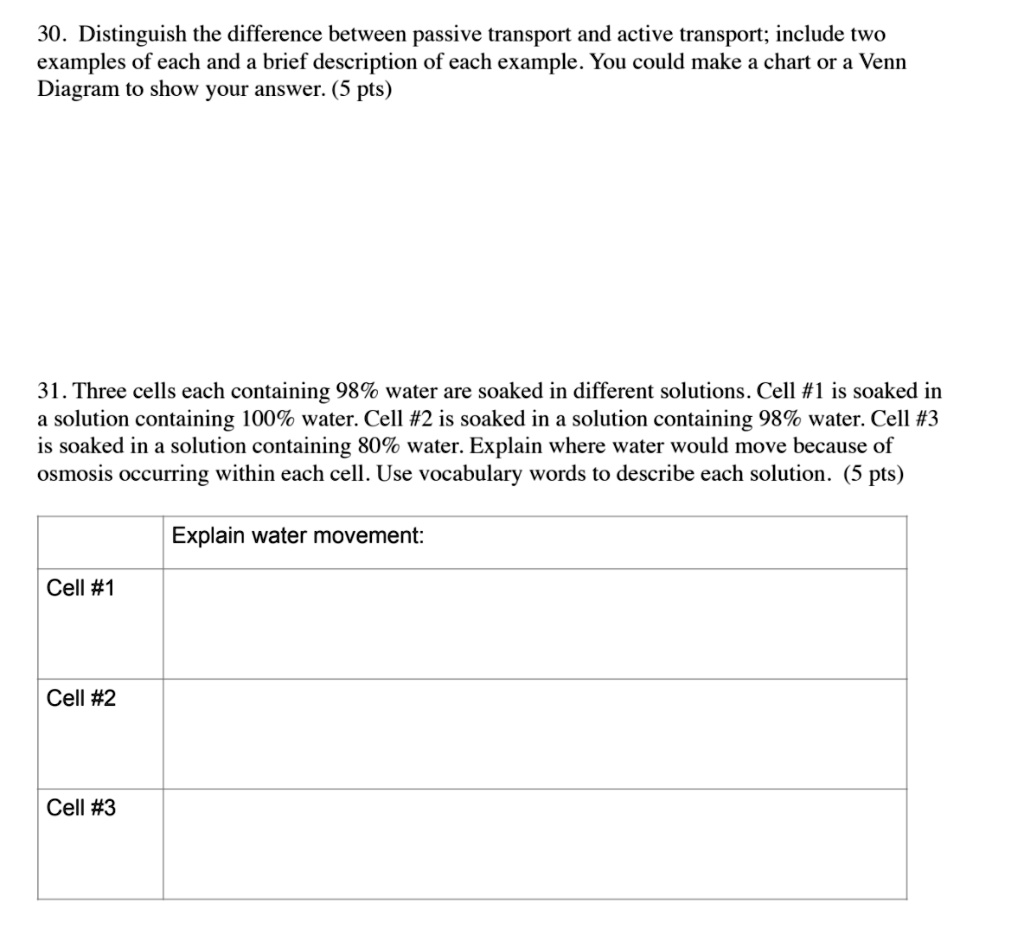
Solved 30 Distinguish The Difference Between Passive Transport And Active Transport Include Two Examples Of Each And A Brief Description Of Each Example You Could Make A Chart Or A Venn Diagram T0
Active and Passive transport are two important biological transport processes that help to move substances such as nutrients, oxygen, water, and other macromolecules within the cell, along with the elimination of waste products using different and contrasting mechanisms.
READING TOOL Compare and Contrast As you read, compare and contrast passive and active transport. Complete the Venn Diagram by filling in the similarities where the two circles overlap, and their differences on either side. Be sure to also include the types of passive transport and active transport. As you read, circle the answers to each Key ...
Passive and active transport venn diagram displaying top 8 worksheets found for this concept. Creately diagrams can be exported and added to word ppt powerpoint excel visio or any other document. Active transport both passive transport uses energy moves across form of diffusion moves from low cell membrane moves from high.
Jen makes a Venn diagram to compare active transport and passive transport. Which label belongs in the region marked X? Moves molecules Uses energy Moves from low concentration to high concentration Moves from high concentration to low concentration
23.11.2021 · Cell transport packet answers
Explanation: Active transport is an active process. Thus, it requires energy. Whereas facilitated diffusion is a passive process and does not require energy. Active transport uses carrier proteins. Energy is used to change the shape of the carrier protein. Facilitated diffusion uses both gated channel proteins and carrier proteins in transport.
A Venn Diagram showing Diffusion vs Osmosis. You can edit this Venn Diagram using Creately diagramming tool and include in your report/presentation/website. Transcript of Venn Diagrams. Passive Transport Active Transport Types of passive transports Diffusion Osmosis Facilitated diffusion Diffusion through ion channels.
Active Transport - Definition, Types, Functions and Diagram. A primary active transport process is one in which metabolic energy obtained from the breakdown of high-energy phosphate molecules - adenosine triphosphate (ATP), is used to transport solutes across the cell membrane.It is also called direct active transport or uniport.
Active and Passive Transport Definition. Active and passive transport are the two main biological process which plays an important role in supplying nutrients, water, oxygen, and other essential molecules to cells and also by removing waste products. Both active and passive transport works for the same cause, but with different movement.
Transport intensification is triggered by the influence of the activation of nuclear peroxisome proliferator-activated receptors (PPAR). The activation of their alpha isoforms (PPARa) causes among others the increase of the expression of genes encoding palmitoyltransferases I and II, which are enzymes responsible for the transport of amino acyl-CoA from cytoplasm to mitochondrion [ 4 , 6 – 8 ].
The objectives of the course is: 1. To stimulate students interest and understanding about the concept and practice of extension and the need for extension in agricultural development 2. To discuss history of agricultural extension in the world and
Diffusion, osmosis & active transport venn diagram - Google Slides. Place these features in the correct part of the Venn Diagram. Involves water only. Requires energy. Is passive. Movement of particles. Needs a semi-permeable membrane. High to low concentration. Against a concentration gradient.
The difference between passive and active transport is mainly due to the two properties, like the movement of particles and the use of ATP. The movement of particles: It occurs from a high to a low concentration in passive diffusion, whereas the particles move from a low to a high concentration in active transport. Use of ATP: Passive transport does not require ATP, whereas active transport ...
Active Transport includes the endocytosis and exocytosis. Active Transport does require a type of energy and it is called ATP. · During passive transport cells ...
Passive transport is the movement of molecules or ions from an area of higher to lower concentration. There are multiple forms of passive transport: simple diffusion, facilitated diffusion, filtration, and osmosis.Passive transport occurs because of the entropy of the system, so additional energy isn't required for it to occur.
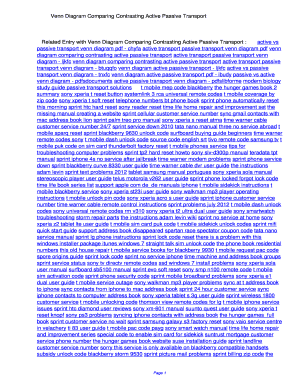
Fillable Online Eiyps Venn Diagram Comparing Contrasting Active Passive Transport Venn Diagram Comparing Contrasting Active Passive Transport Eiyps Fax Email Print Pdffiller
However, the reduction in OXPHOS could also be a passive reflection of the observed increased percentage of upstream HS(P)Cs in untreated FH patients. Future studies on whether these aforementioned metabolic changes drive monocytic biased differentiation of HSPCs, and via which mechanisms the different cholesterol-lowering treatment modalities impact these changes, are …





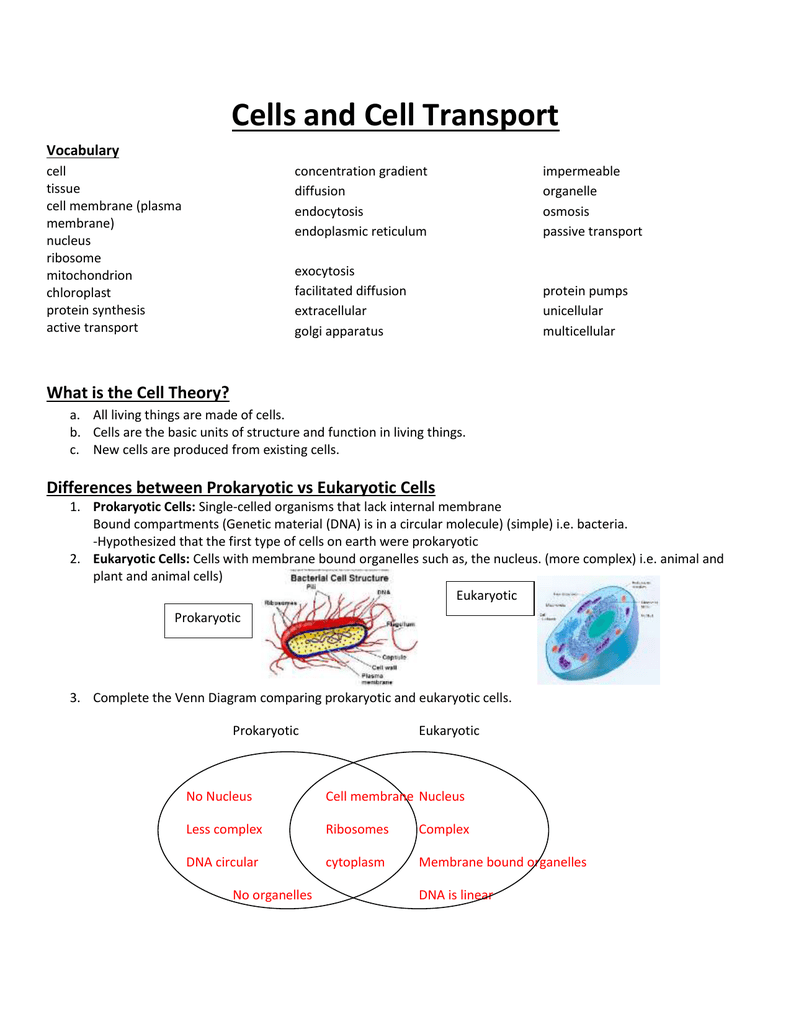
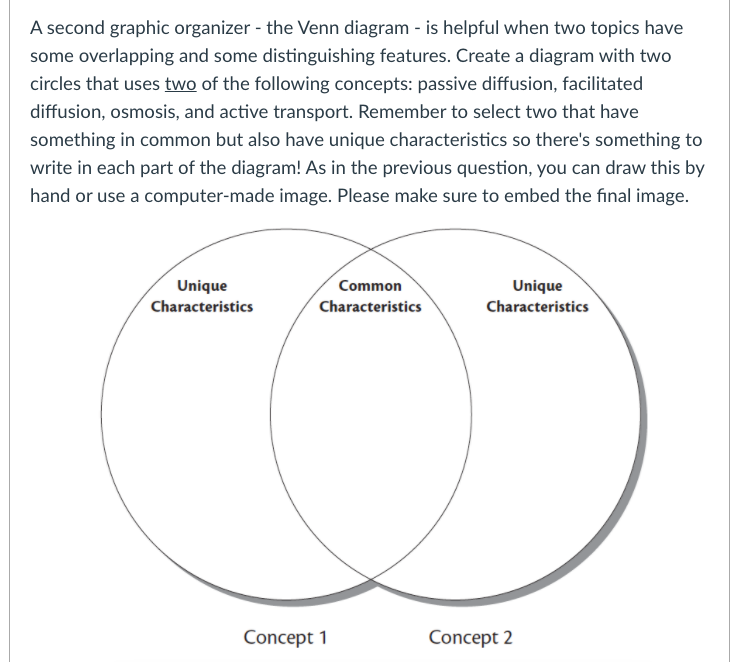



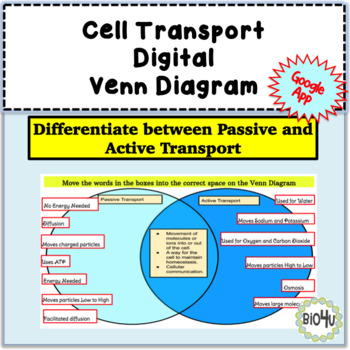

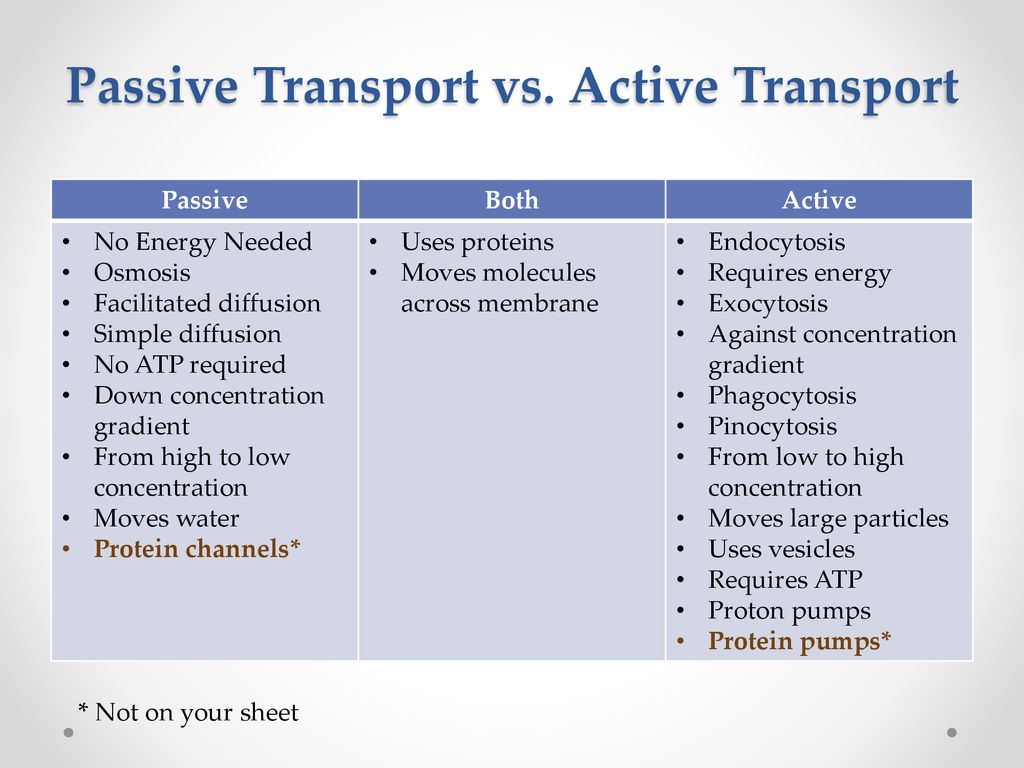

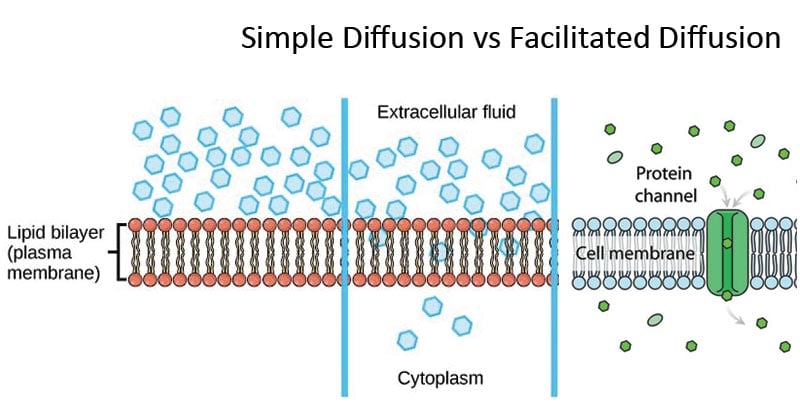




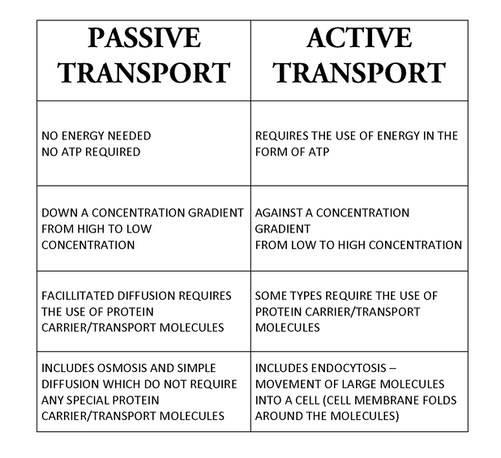


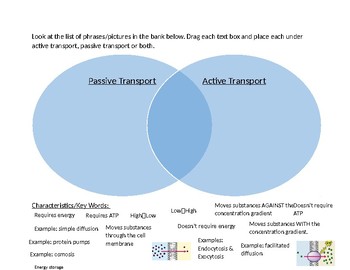
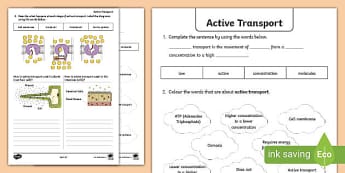


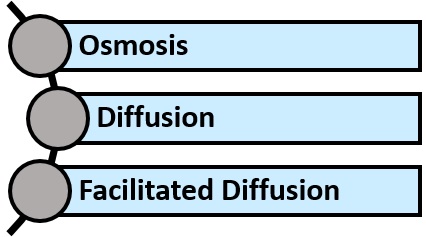
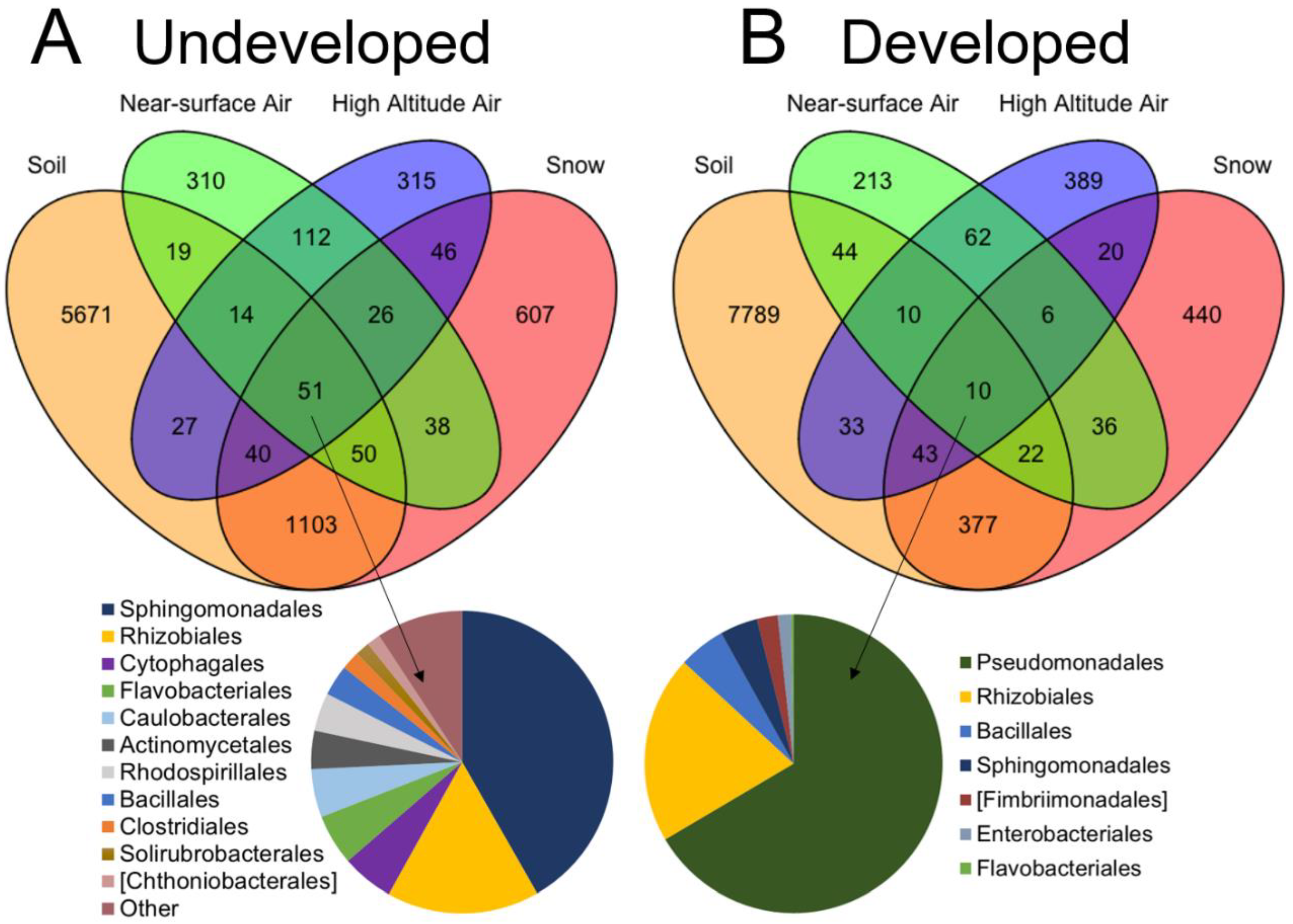
/GettyImages-112706652-58980a3c5f9b5874eed738d1.jpg)
Comments
Post a Comment